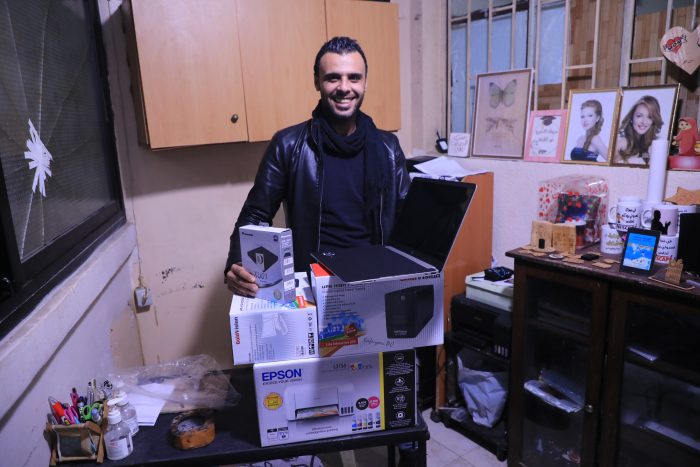In Lebanon, Palestinian camps are suffering from tough humanitarian conditions and an increase in needs, all combined with the economic crisis that started in the country in 2019 and worsened due to the Beirut Port explosion, banks withholding depositors’ money, the spread of the Coronavirus which led to frequent closures in markets and jobs, increase in unemployment rate, and economic life paralysis. That’s beside the increase in living and operating costs, the continuous power cuts, the increase in fuel and basic materials prices, and the lack of income sources in Lebanon generally and the Palestinian camps particularly.
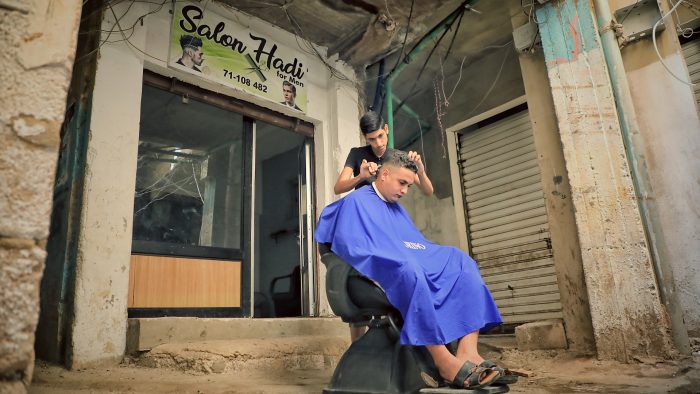
Among the Palestinian refugees, poverty reached high levels, and the Palestinian camps and communities suffer from the loss of livelihood and the decline in UNRWA services due to the decrease in international funding. Both the latter and the US government’s decision to suspend aid to UNRWA forced the UN agency to announce at the beginning of 2018 that it was facing a serious crisis in securing the funding necessary to continue providing services, particularly in the education and health sectors to the Palestinian refugees. Currently, the Foundation operates in five different Lebanese regions. Beginning its activities in 2018, the Foundation has expanded, covering Shatila and Burj el Barajneh camps in Beirut, Ein El Hilweh camp in the south, and Beddawi camp and Al-Mankubeen area in Tripoli.
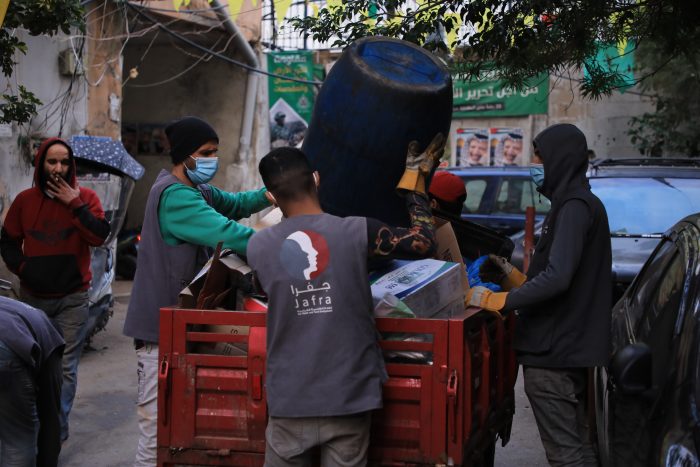
In these areas, the Foundation implements cleaning and waste collection programs in the camps, through “The Cash for Work” program, where unemployed youth are involved in cleaning the streets of the camp and collecting waste, aiming to reduce diseases and epidemics and achieve a clean camp environment. Moreover, in the Women’s Program, the Foundation implements a project to properly prepare and package food; women are trained and employed to prepare food baskets to be distributed to poor or needy families inside the camp. Furthermore, national events are revived, sports teams are established in each camp, and other volunteering activities are performed.

In Lebanon, the Jafra Foundation is working on a capacity-building program. Throughout the years, the Foundation’s staff have been able to build up their humanitarian and development work experiences in the Palestinian camps. The work throughout the Syrian and Lebanese crises has deepened this experience and enhanced local experiences in working in times of conflict or emergency. The Foundation team developed a comprehensive and intensive training curriculum aimed at building the capacities of local workers in local organizations and at all levels. The training curriculum covered several topics such as leadership, organization and project management, risk analysis, developing strategies and internal fundamentals, financial and logistical principles, monitoring and evaluation, public relations, and leadership skills.
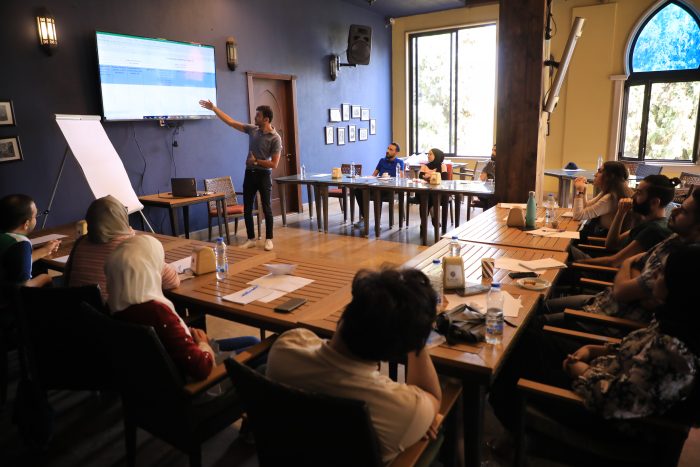
Through accumulated experience, the Foundation has been able to succeed in continuing to provide services, overcome all difficulties and avoid risks to ensure the continuity of work, particularly in the waste management domain and all the basic services provided by the foundation inside and outside the Palestinian camps.
Thus, we sincerely thank and appreciate the teams operating in the Palestinian camps field in Lebanon, especially for their serious handling of the crises they are going through, mostly with the worsening health crisis due to coronavirus spread and the poverty and unemployment rate growth among Palestinian refugees whose situation went downhill as a result of the economic and political crisis that is ravaging Lebanon. Since the Palestinian camps and refugees are among the most vulnerable groups in general, they will naturally suffer more than others besides the poor and disadvantaged groups in Lebanon.
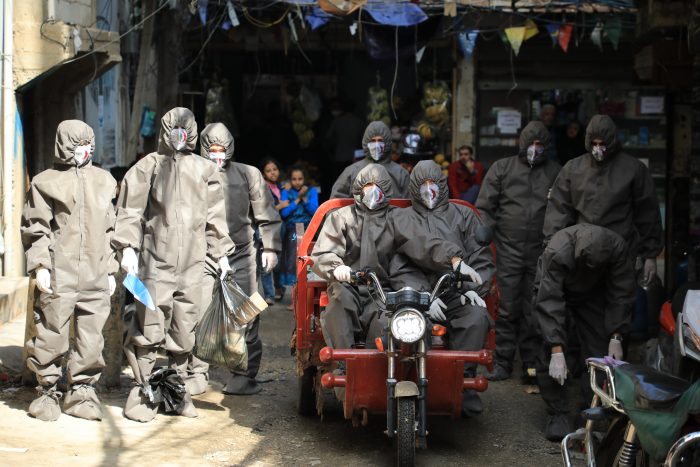
Through the Livelihood Enhancement Program, the Foundation works to restore the culture of agriculture to the Palestinian camps, as most Palestinian refugees’ background goes back to farming. Farmers constituted the majority of Palestinian refugees; however, since they were uprooted from their homeland and overcrowded in camps, they forcibly stopped farming works.
Although many Palestinian refugees worked after their asylum in the agriculture field, the decline of agricultural lands associated with the population expansion caused the decline of agriculture in exchange for employment in the city, construction, and others. Yet, some camps, still close to agricultural lands as Al-Rashedieh camp, have their residents still largely work in agriculture.
By this means, the Foundation began developing an agriculture training program, urban agriculture in particular, by benefiting from some available spaces inside the Palestinian camps. The aim is to improve and cultivate these spaces and benefit from their products at the level of the neighborhood or the residential surrounding. Inside the Palestinian camps, organic cultivation of rooftops has been performed in addition to a training course on vertical farming and urban agriculture along with its methods, characteristics and precautions.
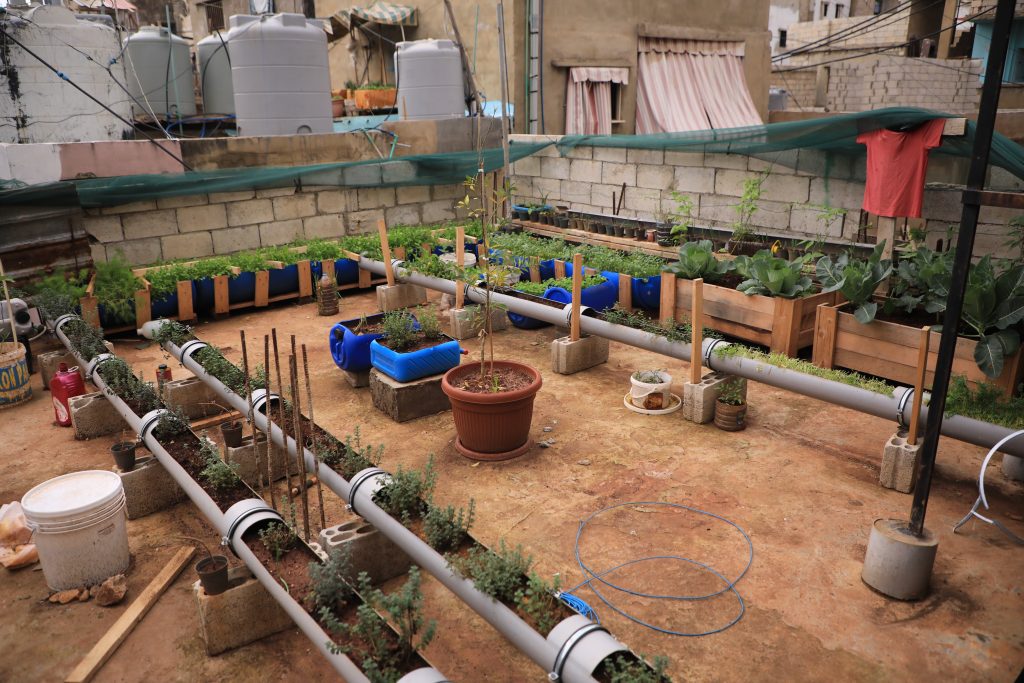
Agricultural work is considered one of the means of environmental, cultural, and national work and contributes to improving the general landscape of the camps by introducing the green color and all types of crops into the camp, where some awareness and entertaining activities were carried out with children of all ages on cultivated rooftops. Also, in Lebanon, the Foundation is supporting small to medium-sized projects, aiming to support the camps’ economic wheel and develop their capabilities through specialized training courses in the field of small and medium-sized businesses. In addition, financial support is provided through one-time funding for businesses, workshops, events, or activities development. Until now, more than 200 small and medium-sized projects have been funded by the Foundation in the Shatila and Burj el Barajneh camps.
